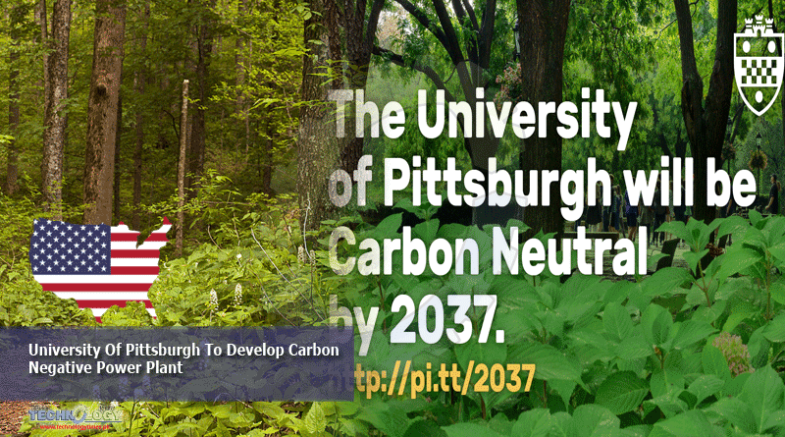Researchers At The University Of Pittsburgh, Pennsylvania, Us Have Received Just Over Us$800,000 In Funding To…

Develop A Carbon-Negative Power Plant Develop A Carbon-Negative Power Plant That Produces Reduced Amounts Of Carbon Emissions And Captures Carbon From The Atmosphere During Idle Periods.
According to the Pittsburgh university, as renewable power generation increases, conventional energy sources such as natural gas, coal, and nuclear power will be required to balance the US energy portfolio. However, traditional methods will not need to produce as much energy in future as they currently do and so they will sit idle some of the time.
The researchers at Pittsburgh will work on a project to develop a natural gas-fired combined cycle (NGCC) power plant hybrid that uses membrane and sorbent carbon capture systems. The proposed system would integrate natural gas with two carbon technologies. It will include a membrane system that captures carbon dioxide (CO2) from the plant’s exhaust and a sorbent system to absorb leftover CO2 from exhaust and CO2 from the air.
During normal operations, the NGCC plant will produce power while the two carbon systems capture about 99% of the resulting CO2. During off-peak hours, the plant will use its power to run the carbon capture systems and remove atmospheric CO2. By eliminating carbon emissions from the power plant when producing electricity for the grid and capturing carbon from the atmosphere the plant is expected to be carbon negative.
Additionally, the hybrid plant is expected to be flexible to changes in the electric grid, and to profit from carbon prices during off-peak hours to minimise capital costs.
The team will develop models, optimise the system using tools developed by the US Department of Energy (DOE), and perform dynamic simulations. The funding received by the researchers was awarded by the DOE as part of Phase 1 of the highly competitive Advanced Research Projects Agency-Energy (ARPA-E) Flexible Carbon Capture and Storage (FLECCS) programme. The DOE awarded a total of US$11.5m to 12 projects.
Katherine Hornbostel, Assistant Professor of Mechanical Engineering and Materials Science, and her team were awarded the funding. The project will see Hornbostel partner with Gleen Lipscomb, Professor of Chemical Engineering at the University of Toledo, US; Debangsu Bhattacharyya, Professor of Chemical Engineeing at West Virginia University, US; and Michael Matuszewski, Founder of AristoSys, which provides research and development guidance through advanced process simulation and optimisation.
Hornbostel said: “We still have a large fleet of natural gas and coal plants in our country. As we add renewables, which provide intermittent energy, we’ll still need those fossil power sources to make sure the grid is consistently powered.”
“The FLECCS funding call asks how we can make those fossil sources cleaner and even use them to improve air quality.”
Pennsylvania Congressman Mike Doyle said: “The world must achieve net-zero carbon emissions in a few short decades, or the impact on the environment and our society will be devastating. It’s essential that, as we make the transition to carbon-free energy, we also make efforts like this to reduce carbon emissions from existing power plants that use fossil fuels – and explore technology that could reduce the carbon already in our atmosphere.
“ARPA-E is playing a critical role in promoting groundbreaking research on all aspects of energy production and consumption, and I strongly support its important work.”
ARPA-E says FLECCS project teams will work to develop CCS processes that enable better technologies, such as natural gas power generators, to be responsive to grid conditions in a high variable renewable energy (VRE) penetration environment.
This news was originally published at thechemicalengineer.com
